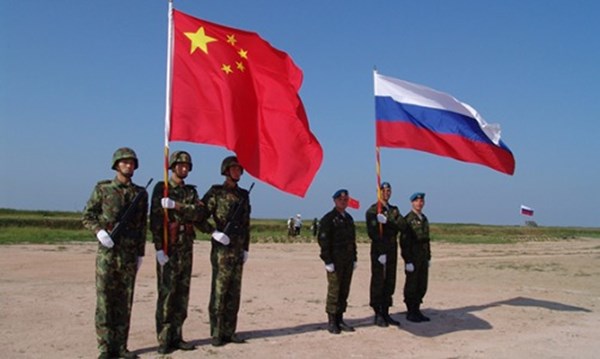U.S. military warns of escalating risk of conflict with Russia and its allies
In a stark address to Congress, General Gregory Guillot, head of the U.S. Northern Command (NORAD), cautioned that the risk of direct confrontation with adversaries like China, North Korea, Iran, and Russia has heightened amidst a progressively volatile global atmosphere.
During his speech, General Guillot highlighted the threats posed by the collaboration between China and Russia to the U.S.
Guillot identified three pivotal trends causing deep concern due to their immediate implications for U.S. defense strategies. The potential for a direct conflict with one of the four main adversaries is increasing.
He underscored the ongoing full-scale war in Ukraine, now in its fourth year, along with how the 2023 Hamas attack on Israel escalated into a broader military operation engulfing much of the Middle East. A similar scenario might unfold in Europe.
Guillot stressed that rising tensions in the Taiwan Strait and the South China Sea carry perpetual risks of an armed conflict between China and the U.S. with generational consequences.
" Finally, Kim Jong Un’s public abandonment of peaceful reunification as a national goal and growing assertiveness on the global stage risks sparking renewed conflict on the Korean Peninsula after more than seven decades of uneasy Armistice," stated the general.
General Guillot warned that post the full-scale invasion of Ukraine by Russia, the Kremlin reinforced its strategic ties with three other U.S. adversaries, elevating the risk that a war with one could rapidly evolve into a broader conflict with an enemy coalition. At the center of this alarming development is the swift expansion of relations between the U.S.’s most capable adversaries: Russia and China.
“Despite decades of mutual mistrust, Beijing and Moscow seem determined to advance their strategic partnership and military cooperation to counter what they perceive as a persistent U.S. threat to their core security interests,” Guillot mentioned, noting the deployment of Chinese bombers to a Russian Arctic airbase in 2024, participating in joint patrols over the Bering Sea.
"Such “access transfer” accelerates and extends China’s ability to threaten North America in the air domain and raises the specter of coordinated military operations in the event of a strategic conflict.," Guillot remarked.
He also noted North Korea’s willingness under Kim Jong Un to risk its military resources in backing the Ukraine war.
"This raises questions about the exchanges Moscow might offer in return, potentially including expertise that could expedite Pyongyang's development of advanced strategic weaponry," Guillot stated.
The general expressed concerns over how adversaries are rehearsing their plans to threaten the United States across multiple domains, boosting the likelihood of an armed conflict reaching American soil. In July 2024, Chinese surface bombers were deployed in the Bering Sea, within missile range of critical infrastructure across Alaska. Additionally, China's launch of two new Shang III nuclear-powered guided-missile submarine fleets since 2023 could feasibly enable covert ground offensives on critical U.S. infrastructure along Alaska and the West Coast, without crossing the "nuclear threshold."
Guillot emphasized the increasing need for strategic alliances with Mexico, Canada, and other U.S. allies, as risks escalate and adversaries continue enhancing their military capabilities—especially Russia and now North Korea acquiring real battlefield experience.
